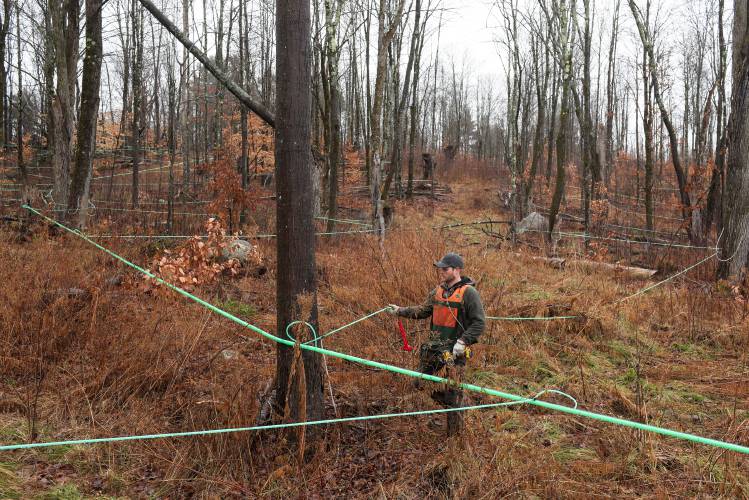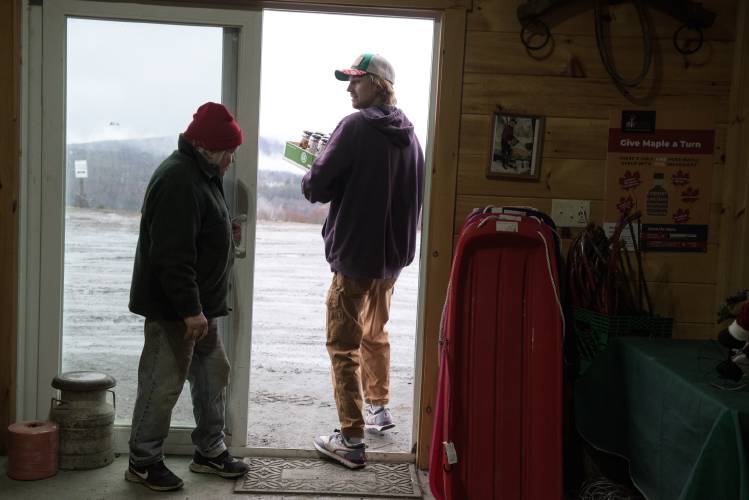Extreme weather afflicting Upper Valley farmers
|
Published: 12-30-2023 7:57 PM
Modified: 01-02-2024 12:42 PM |
Barbara Patch credits good air flow at the 1,200 foot elevation of her family’s Lebanon apple orchard with limiting the damage from a May freeze that devastated crops. The Patches saved around 50% of their fruit.
The killing frost was just one example of the extreme weather that afflicted Upper Valley farmers this year. Heavy rain through the summer stunted vegetables, and unseasonable warmth last winter led to a short maple season.
“Nature gives and nature takes away, so you’ve got to learn,” Patch said. “That’s why we diversified.”
In addition to their pick-your-own and wholesale apple distribution, they were able to use frost-damaged apples for the hard cider they make.
“I can’t move my orchard to a higher elevation,” said Paul Franklin of Riverview Farm in Plainfield, who lost the majority of his pick-your-own apple crop in the freeze. With more than 10 acres of trees, it’s impractical to try to coat trees with a protective layer of ice during a freeze, or invest in propane orchard heaters, he said.
“None of us want to go through another year like this by looking for a handout,” said Franklin of two bills in the New Hampshire Senate that would provide financial help for farmers affected by last year’s freeze and future natural disasters. “It won’t hurt, but it’s not the answer.” The only solutions, said Franklin, are to “get serious” about climate change and try to learn from the severe weather experienced in 2023.
The year is ending on a discouraging note. Mild temperatures pushed the first maple sap boil at Patch Orchards to Dec. 27, a week earlier than last season, which was short and produced less syrup than a more typical season for the family.
Article continues after...



 Homeless Upper Valley couple faces ‘a very tough situation’
Homeless Upper Valley couple faces ‘a very tough situation’ Kenyon: Constitutional rights should trump Dartmouth’s private interests
Kenyon: Constitutional rights should trump Dartmouth’s private interests Crane crash on Interstate 89
Crane crash on Interstate 89
